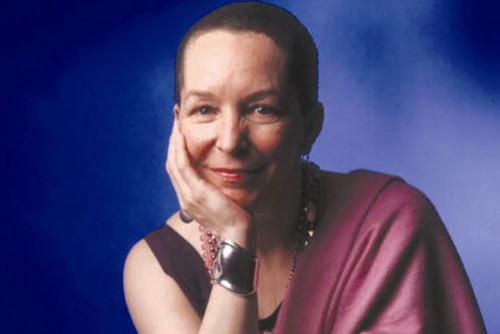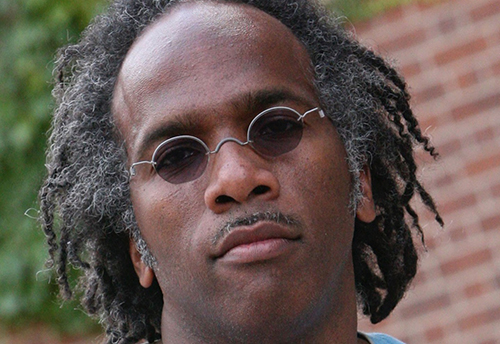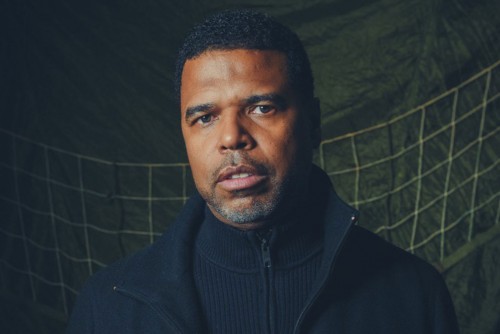
The Ford’s Theatre Legacy Commissions: A First Look – 2023
This free, three-day public festival of readings provides a preview of new plays in development with members of our first cohort of playwrights in The Ford’s Theatre Legacy Commissions initiative. Seema Sueko (Silent Sky) will direct Pearl Cleage’s meditation on the life and impact of Maynard Jackson, Something Moving: A Meditation on Maynard. Dominic Taylor’s exploration of pioneer Black biologists Dr. Ernest Everett Just and Dr. Roger Arliner Young, Young and Just, will be directed by Donald Douglass. Thomas F. DeFrantz will direct Blackbox, Rickerby Hinds’s magical hip-hop retelling of abolitionist Henry Box Brown’s escape to freedom. There will be opportunities for expanded conversations around the work. With A First Look, Ford’s gives audiences an unparalleled inside peek at the process and voices that shaped these works.
Senior Artistic Advisor Sheldon Epps, Director of Artistic Programming José Carrasquillo and The Ford’s Theatre Legacy Commissions Advisor Sydné Mahone lead the initiative. Learn more about each play below.

Something Moving: A Meditation on Maynard
by Pearl Cleage; Directed by Seema Sueko
Pearl Cleage’s commission explores the election of Maynard Jackson, Atlanta’s first Black mayor, and his legacy. In choosing to tell the story of the 1973 landmark election, we are introduced to everyday-life citizens of Atlanta as they recollect the significance of the election. In playing homage to Thornton Wilder’s Our Town, Cleage has turned the city of Atlanta into a full-blooded character.
In Pearl’s Own Words:
This play is set on the 50th anniversary of Maynard Jackson’s election as Atlanta’s, first African American mayor. That election also made him the first African American mayor of a major Southern City. The play nods to Thornton Wilder’s classic Our Town by employing the use of a Stage Manager to guide us through the story and give us some insight into how it felt to be present at that historic moment.
To understand Jackson’s national significance demands a look back at the history of race and class in Atlanta (and throughout the South) beginning with the arrival of the first ships filled with the people who were called slaves, continuing through the Civil War, Reconstruction, the Civil Rights Movement, and finally, the Voting Rights Act of 1965, 110 years after Lee surrendered at the Appomattox Court House. In the sense that voting was finally proof of full citizenship for African American people, Jackson’s election marks the real end of the Civil War.
The whole city was deeply affected, politically and emotionally, by Jackson’s election and everyone participated, either by choice or simply because they were unable to stand against the flow of history.
With Maynard at the center of the story to “give people something to hold onto,” the play is also a testimonial to the importance of including the personal story in the telling of the “hero’s tale.” The play makes a case for the power of our collective memory. Amiri Baraka wrote “if the beautyful see themselves/they will love themselves.” I believe that, too, so this play is a mirror as well as a meditation; a memory of a moment when our town was “wholly human, and that was enough.”
Artistic Team
Cast

Young and Just
by Dominic Taylor; Directed by Donald Douglass
Dominic Taylor’s commission explores the life and work of African American pioneer biologist Dr. Ernest Everett Just and that of his lead researcher Dr. Roger Arliner Young. Taylor’s investigation into the life and scientific achievements of Dr. Just – known as the Black Apollo of Science, led him to Dr. Just’s association with another scientist, Dr. Young. This character driven account highlights Taylor’s revelatory and insightful storytelling.
In Dominic’s Own Words:
I discovered Dr. Ernest Everett Just because my sister went to Dartmouth College, and I knew he was the first Black graduate there. I also knew he was a scientist, underappreciated and on a postage stamp. I wanted to bring his story to light, and when I was researching Dr. Just, I found out about Dr. Roger Arliner Young—a woman who went to Howard to study music found her true calling with a microscope.
She was the first Black woman to gain a Ph.D. in the Sciences from the University of Pennsylvania. On the side she was a labor organizer. This play is their story.
Artistic Team
Cast

Blackbox
by Rickerby Hinds; Directed by Thomas DeFrantz
Rickerby Hinds’s commission explores the remarkable life of abolitionist Henry Box Brown who was also a magician and illusionist. In 1849, he arranged to have himself mailed in a wooden crate from Virginia to abolitionists contacts in Philadelphia. Considered a theatre pioneer in merging hip-hop and theatre, Hinds transforms his story into an epic poem with hip hop influences and magic to highlighting the spectacular nature of Brown’s journey to freedom. Later in his life Henry Brown became a noted abolitionist speaker and went on to earn a living as a touring magician.
*Blackbox’s play development has taken place by generous support from CalArts.
In Rickerby’s Own Words:
Blackbox takes the narrative of Henry Box Brown and transforms it into an epic poem with hip-hop influences… and magic. The story is told by a Magician and his Assistant/Spirit Presence whose magic show takes place in the see-through box that is the stage where the remains for the entirety of the performance until Henry “magically” disappears from enslavement and reappears free. A re-envisioning of the box in which Henry spent 27 hours on his way to freedom. This premise allows me to address some of the horrors of Henry’s life in a ‘spectacular’ way.
The dialogue in Blackbox will take multiple forms: spoken word poetry, black minister’s sermon, politicians stump speech, academic lecture, sports announcer, rapper. The different vocal styles will be dictated by what’s being said.
Movement will play a significant role in Blackbox as Henry will employ movement from TURF Dance to Butoh to convey the atrocities of the institution of American Chattel Slavery imposed on the Africans who were imported and bred for servitude to evil slave masters for centuries.
Music and musicality will also play important roles in Blackbox based on Henry Brown’s having been a singer in his church choir. I intend to use music and the generation of melodic sounds as a means of creating levels of narrative. I see/hear the use of gospel music at various intervals as the church – the “slaveholding Christian church” played such a significant role in the life of Henry Brown.
Blackbox will employ magic throughout beginning with Henry’s “appearance” in the box at the start of his story and his disappearance at the end. In the show Henry performs feats of magic inspired by the events in his life. He makes flowers appear while talking about his evil master’s scheme to convince the children on his plantation whom he brutally enslaved, that he was God who made the thunder and brought the rain that watered his beautiful flowers. Money will catch fire and disappear out of Henry’s hands as he tells the story of how he was cheated out of so much money by the evil master who “owned” and eventually sold his wife Nancy.


